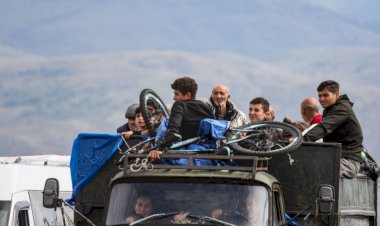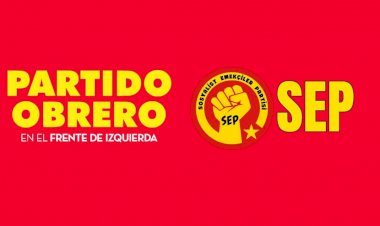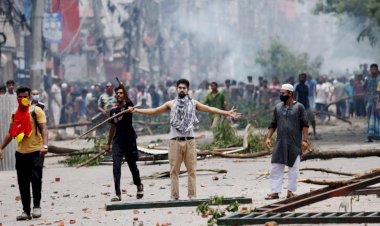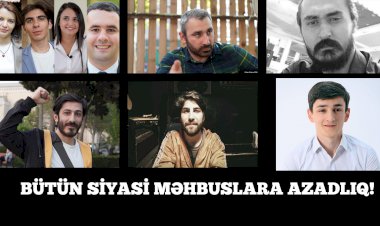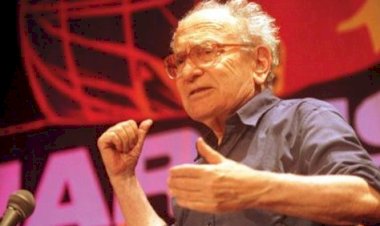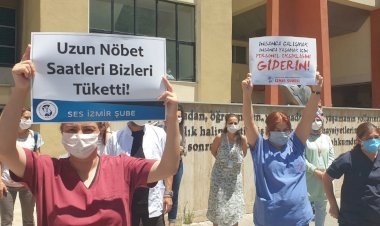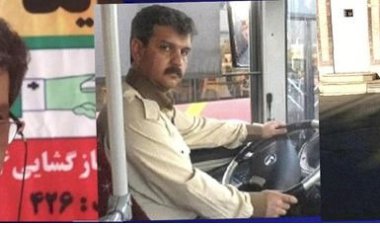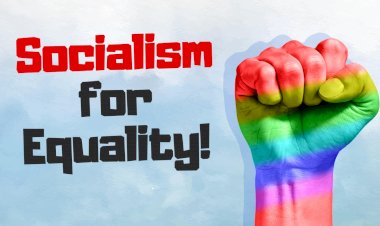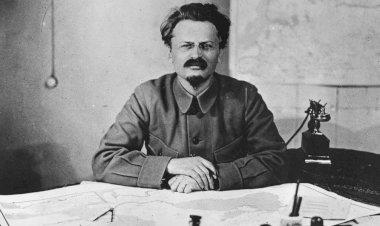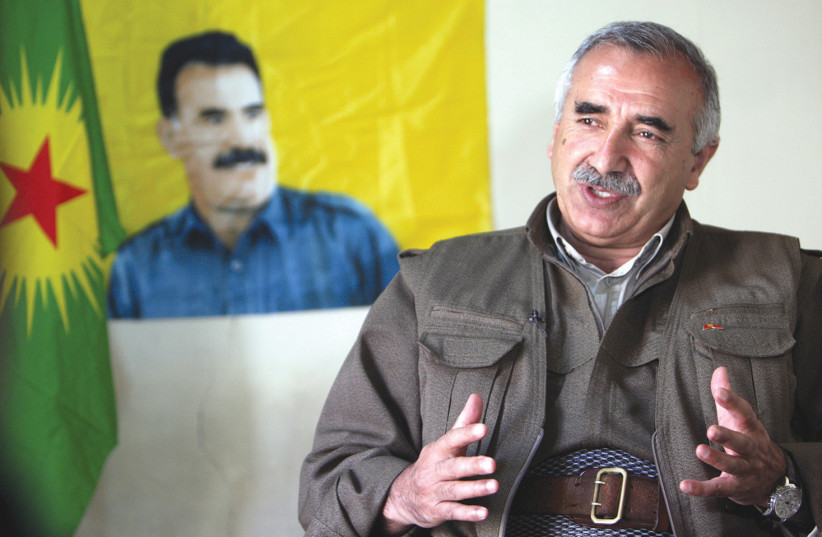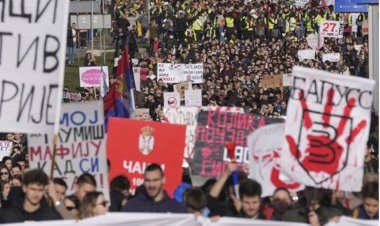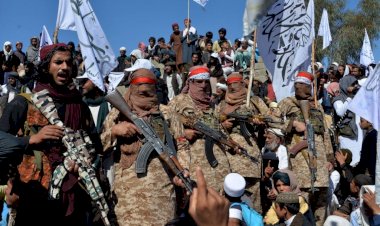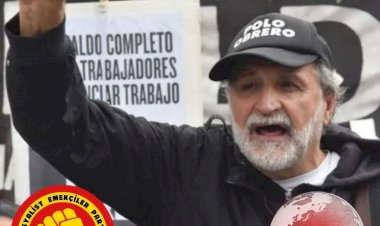In Memory of Esteban Volkov and All Communists Who Paid the Price to Save the Soviet Revolution
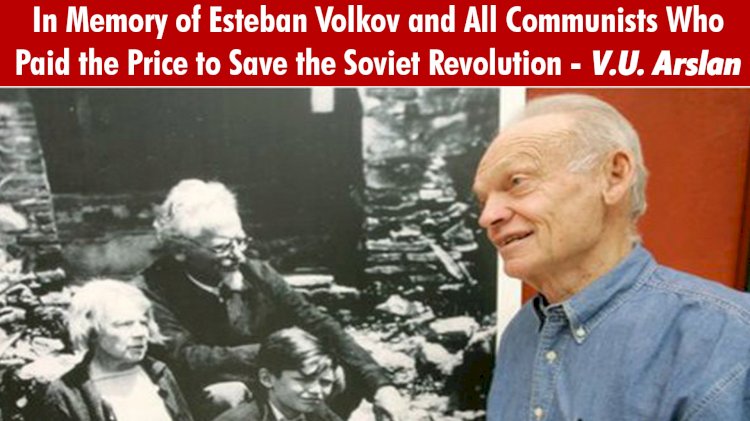
The grandson of Leon Trotsky -the leader of the October Revolution with Lenin and the founder of the Red Army- Esteban Volkov died in Mexico at the age of 97. Esteban Volkov had to endure the murders of his mother, uncle and grandfather, respectively, when he was a child. He would only vaguely remember his father and grandmother, who were killed in exile. Volkov was one of the last representatives of a generation of orphans in the USSR whose families were murdered in the Great Purge.
When Esteban Volkov was born (1926) as the son of Trotsky's daughter Zinaida and an active Bolshevik, Platon Ivanovich Volkov, Josef Stalin was on his way to consolidationg power in the Soviet Union. Starting in 1928, leading figures in the Bolshevik tradition, heroes of the civil war and their close comrades began to be expelled from the party and deported to Siberia. This process was going to be connected to the political genocide called the Great Purge, in which hundreds of thousands of people were killed in the communist party between 1936-39, reaching incredible dimensions. During this period, Stalin reached the extremes of personal revenge and paranoia by including families and relatives in the liquidation process. Even Molotov (1), one of Stalin's closest men, had to experience his wife being sent to a concentration camp, the murder of his closest colleagues, and the fear of death. In this case, the relatives of Trotsky, who was Stalin's greatest enemy, would also be among the main targets of this terror.
Esteban's father, Platon Volkov, also a charismatic revolutionary and a member of the Left Opposition led by Trotsky, was sent to Siberia and murdered in a concentration camp in 1936. His mother, Zinaida, an active revolutionary, had to endure the exile of her husband and father after first enduring the pain of her sister Nina Nevelson's death in her arms from tuberculosis. Also, Nina's children, her nieces (Trotsky's grandchildren) Lev and Volina, would also "disappear" in the process. Zinaida, who, like her sister Nina, suffered from severe tuberculosis, was allowed to leave the Soviet Union for treatment in 1931 only on the condition that she leave behind one of her children as a kind of hostage. Esteban's fate was drawn at this point. Zinaida decided to take her son Esteban to Istanbul Buyukada, the new exile place of his grandfather Trotsky. Zinaida's younger daughter, Alexandra, from her first marriage, stays with her father, Sachar Moglin, but Moglin would soon be arrested and executed as well. Little Alexandra would grow up in an orphanage and prison, enduring great pains.
The psychology of mother Zinaida, who has had difficulty in enduring these pains, had deteriorated. He could not get any news from her husband, children, nieces and mother Alexandra (Alexandra Solkolovskaya, Trotsky's first wife) in Russia, and her suspicion that they would be killed was becoming more and more certain. She moved in with her half-brother Leon Sedov, who was in Berlin, to treat her psychological problems.
In Berlin, however, the Nazis were marching to power at an alarming rate, worsening Zinaida's psychology. Meanwhile, the Stalinist power stripped Zineida of citizenship and made it impossible for her to return to Russia. In all these desperations, Zinaida committed suicide in January 1933. A few weeks later, the Nazis declared their dictatorship in Germany. Leon Sedov, Trotsky's son by his second wife, Natalya Sedova, managed to escape from Germany at the last moment. Esteban Volkov, who lost his mother, later reunited with his uncle Leon Sedov in Paris. But this union could last until February 1938. Leon Sedov, who played a key role in the foundation preparations of the 4th International, was under the close watch of the Stalinist intelligence service GPU, and they eventually poisoned and murdered him. (Esteban's younger uncle, Sergei Sedov, would also be executed in Siberia.) Leon Sedov's widow, whose psychology was disturbed greatly by oppression, initially tried to keep Esteban with him, but in August 1939 Alfred Rosmer managed to send the child to Trotsky and his wife Natalia in Mexico. However, the Stalinist terror was also on the hunt for assassination in Mexico. On May 24, 1940, a team of Stalinist agents under the command of the painter Alfaro Siqueiros raided the house to assassinate Trotsky. Like his grandfather, Esteban Volkov was lightly wounded in the next room by being shot in the leg. Three months later, however, another assassination attempt by Ramon Mercader succeeded: Leon Trotsky succumbed to heavy blows to the head on August 21, 1940. Esteban also lived in the same house with his grandfather during this period, and he never forgot the day his grandfather was murdered. He would recount that day later: “I had no idea what was going on. When I entered the study room, I saw Lev Davidovich lying injured on the floor, but the guards and others prevented me from getting any closer. My grandfather said, ‘Don't let Seva in, don’t let the child see it.’ Afterwards, he passed the garden for the last time on a stretcher carried by male nurses.”
Esteban Volkov lived in this house until the 1970s, he was the best friend of her step-grandmother, Natalya Sedova, until her death. When he received Mexican citizenship, he named himself Esteban, which sound like Seva, a short form of his Russian name. Since his retirement in 1989, he devoted himself to building the Museo Casa de León Trotsky, which he has curated. At the end of 1988, he was able to see his step-sister again in the Soviet Union. Alexandra Moglina died in March 1989 after years of imprisonment and exile before being rehabilitated, after Stalin's death.
Esteban Volkov remained true to the principles and memory of his grandfather, of his whole family who were murdered, and of the Bolshevik cadres until the last moment. He made great efforts throughout his life to preserve the historical memory of his grandfather and to clear his name against Stalinist slanders. In one of the recent interviews with him, he emphasized that “the followers of Trotsky have a piece of the future of humanity”. As the heirs of Lenin and Trotsky today, we are honored to take part in this fight. His memory will live on in our struggle.
1. Molotov Remembers: Inside Kremlin Politics
2. https://www.trotskyana.net/Leon_Trotsky/Genealogy/genealogy.htm






